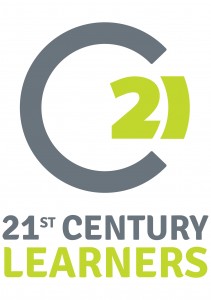Thinking through Dialogue

In the previous post I made an argument for the educational importance of dialogue, suggesting that it has value both as a means of education and as an educational endpoint in its own right. I have also suggested (following the ideas of Rupert Wegerif) that dialogue, or dialogic thinking, is an integral part of gaining conceptual understanding. In this post I try to offer some challenge to the idea that it is not possible, or at least not valuable, to teach ‘general thinking skills’ which, I argue, emerge from dialogues.
These recent posts by Carl Hendrick and David Didau, and this oft-cited article by Daniel Willingham are representative of the arguments against teaching thinking skills. They all stress that critical thinking is dependent on subject knowledge. When solving a problem in mathematics or designing an experiment in science general thinking skills are insufficient; an in-depth knowledge of the relevant subject-matter is required. Willingham says:
“The processes of thinking are intertwined with the content of thought (that is, domain knowledge). Thus, if you remind a student to ‘look at an issue from multiple perspectives’ often enough, he will learn that he ought to do so, but if he doesn’t know much about an issue, he can’t think about it from multiple perspectives.”
Willingham goes on to consider a particular kind of critical thinking: problem solving. He focuses on the need to look for the ‘deep structure’ in a problem (to connect the problem to the knowledge needed to solve it) to avoid being confused by its surface structure (the context of the problem). Willingham acknowledges that self-regulation of thinking can help; reminding yourself that there probably is a deep structure and you ought to look for it will increase your chances of solving a problem. However, he again stresses that this ‘thinking skill’ is insufficient – without a depth of domain-specific knowledge you will not be able to recognise the deep-structure and solve the problem.
In his article, David Didau emphasises that the way to get better at solving problems (in maths, for example) is to acquire lots of subject knowledge and then to have repeated practice at applying it in different contexts within the same subject; the critical thinking needed to solve maths problems is developed through experience of solving maths problems. He also argues that the subsequently enhanced ability to solve problems in maths will not lead to better problem solving in other disciplines as it is dependent on subject knowledge. This view is supported from the perspective of neuro-science in another recent blog by Mike Hobbiss.
These authors are arguing that ‘generic’ thinking skills such as seeking different perspectives or looking for deep structure in problems are not sufficient for solving problems and making valid judgements in a given field; these things are dependent on a depth of subject knowledge. I agree. But I wonder whether there is an inter-dependency here, and I want to draw attention to arguments that subject knowledge alone is also insufficient for good thinking and is dependent on general or dialogic thinking skills, which can and should be taught. In what follows I am again drawing heavily on the writing of Rupert Wegerif (see further reading).
Evidence that teaching children to get better at dialogue (through dialoguing around substantive content) leads to improved performance in different domains is provided by the Philosophy for Children (P4C) and Thinking Together approaches. In a recent EEF study, regular P4C practice was found to lead to an additional two months of progress in maths and reading among 7-11 year-olds in England. P4C and Thinking Together are social practices. One possible way of explaining their impact is to view ‘thinking skills’ as being situated in dynamic social interactions and dialogues and not in the static internal mental mechanisms of the individual.
This idea has its grounding in theories such as Wittgenstein’s language games (the meaning of language resides in the way it is used in particular social situations and cultural practices) and Vygotsky’s social development (all that is internal in the higher mental functions was once external, and is an internalised version of social interactions). But the idea of thinking and reasoning being situated in social interactions and specific cultural practices or language games presents a challenge to the idea of teaching general thinking skills: the only skills to be learned are learned within specific cultural practices (mathematics for example) and are not transferable. This seems to support Didau’s argument and to provide theoretical support for the evidence he cites.
Challenges have been offered to this conclusion, however. It seems to follow from the arguments outlined above that ‘truths’ and indeed morals can only exist within cultural practices and language games – there can be no universal truths or morals. Yet if that were true any statement along the lines that ‘thinking skills exist only in specific practices or domains’ cannot be a universal truth – it too must belong to a particular language game (this is a performative contradiction). Furthermore, the theory cannot easily account for ways in which cultural practices are criticised and changed or transcended.
The social philosopher Jurgen Habermas pointed out that there must be features that are common to dialogues in different cultural contexts; at the very least there must be a belief that the outcome can be determined by the better argument, otherwise no-one could sincerely engage in debate. From this it emerges that reason, or at least being reasonable, is more a matter of the way people orientate themselves to each other in dialogues than it is a matter of determinate logic or use of language. A willingness to negotiate differences in world view – to engage in reason across difference, or dialogue – allows new understandings to emerge between different cultural perspectives (and allows us to explain transcendence and transfer).
This ‘inter-subjective orientation’ is a precondition for reason to emerge in a dialogue, but is not in itself sufficient and is complemented by a set of ‘ground-rules’ which describe effective dialogic reasoning. These ground rules are not fixed, but evolving and are partially determined by the needs of each situation and by a sense of care for those with whom we dialogue. The ground rules might include questioning assumptions and responding to challenges with reasons.
So now we have a description of reason (or general thinking skills) living in dialogues – dialogic reasoning. Both Vygotskian theory and empirical evidence suggest that such reasoning is internalised by participants in dialogues, who become more reasonable individuals and better thinkers. Teaching general thinking skills becomes a matter of inducting children into these dialogues, helping them to develop appropriate orientations to the other and helping them to take ownership of the ground rules that make the dialogue reasonable (this is exactly what P4C and Thinking Together do).
Of course dialogic reason is not sufficient, but it can be seen as the yin to the yang of domain-specific knowledge. When we are faced with a new problem or an alien perspective it gives us a way to move forward or ‘go on’ – we can reason across difference and through dialogue generate fresh perspectives and make meaning from our knowledge.
It might be claimed that these social orientations and ground rules are easily and inevitably learned as we become socialised; it might be claimed that they are ‘biologically primary’ – we are pre-programmed to acquire them. But do we need to look further than the recent Brexit debate, or the current presidential election campaign in the United States, to realise that this is not so? How we respond when we encounter that which is other (be that a different perspective on religion or happiness or a different understanding of dynamic equilibrium) is essential to our capacity to reason and to learn. Teaching children to get better at dialogue is a profoundly important educational aim – and the subject of my next post.
If you aren’t convinced by my layperson’s interpretation of these arguments I would urge you to read Rupert Wegerif’s work yourself – to seek out a perspective different to your own and seek to understand it (by engaging in dialogue around it and developing your domain-specific knowledge) and see if there is anything to be learned from it. This is an important thinking skill, and one that transfers to many situations!
Further Reading
Wegerif, R. (2004). Towards an account of teaching general thinking skills that is compatible with the assumptions of sociocultural theory. Theory and Research in Education, 2(2), 143-159.
Wegerif, Rupert (2005) Reason and creativity in classroom dialogues. Language and Education, 19, (3), 223-238 (available online here)



October 31st, 2016 at 14:11
I agree. Of course to think usefully in any domain you need content knowledge but the fundamental process of the thinking is universal – it is not universal in the way that a computer algorithm claims to be universal but in the very human sense of ways of orientations towards others or ways of relating to others in a dialogue. Being able to switch point of view is essential to all forms of good thinking (complex or ‘higher order’ thinking) in every domain. And being able to switch point of view is not something that everyone does equally well and is something that can be taught.
November 7th, 2016 at 14:01
I agree with your inter-dependency of subject knowledge and dialogic skills approach Neil. I believe our level of self-belief is a necessary factor in this equation and that those with low self-belief will struggle to take that relational leap to consider another’s point of view when their own confidence in themselves is shaky. Hence the value of children and young people having experiences where their self-belief about what they thought themselves capable of is challenged and enhanced through their own success. That’s where I think the critical link between UFA’s Peer Tutoring and P4C may lie…..
November 22nd, 2016 at 11:05
Thanks for commenting, Lula. I think your recent blog illustrates beautifully how Peer Tutoring can impact on a person’s sense of self-worth and confidence. I view PT as a dialogic approach with all the inherent benefits that accrue from drawing people into dialogues; the fact that it has real outcomes, allowing participants to make real contributions to their communities, adds so much extra value. I think P4C, or at least a conscious effort to teach for dialogue based on the 4Cs framework, will enrich the dialogues that occur in peer-tutoring and further enhance the outcomes. I fully take your point that there is a positive feedback loop here: as self-confidence develops then the ability to engage in dialogue will be enhanced and so on into a virtuous circle.
November 22nd, 2016 at 15:30
Thanks for the reply Neil – I guess this is why you slipped into working with the UFA so effortlessly (or so it seemed!) because of this shared value base and mutual understanding of the many factors that we need to put in place in the child/young person’s field to enable them to develop deeply and widely.
December 23rd, 2017 at 23:06
Thanks for you thought provoking blog posts on a great number of issues. I will declare my biases up front as someone energised by the work of Adey and Shayer in the last 4 decades. I think the continually returned evidence of far and long transfer by the programmes they developed support your ideas of general changes in thinking leading to a broader range of outcomes. I am working with Michael Shayer on interventions in late primary cognition.